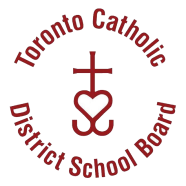Filtration involves the use of different fibrous media designed to remove particles from the airstream. These are installed in mechanical units that supply fresh air to schools.
To increase removal of airborne particulates, in the 2020-2021 school year TCDSB secured and provided 5,449 portable HEPA air purifier to all schools (non-mechanical, partial mechanical and full mechanical). These were distributed to all classrooms (regular, specialty (music, arts, JK and SK, etc) portables excluded, as they have internal mechanical systems with HEPA grade filters, as well as libraries, main office and staffroom.
The Ministry provided funding, Memo B14 “School Ventilation”, for additional HEPA units to enhance boards’ distribution plans for the 2021-22 school year. TCDSB received 1,766 additional units that will be distributed as follows:
Schools without mechanical or partial mechanical ventilation will receive additional units in the following locations:
1 additional HEPA unit to JK/SK
2 HEPA units to per Childcare Room
4 HEPA units per Gym
1 additional HEPA unit to Library
4 HEPA units per Lunchroom (Secondary Schools)
Schools with mechanical ventilation:
If necessary, numbers will be adjusted in non-mechanical ventilation locations such as gyms and libraries to ensure the number of portable HEPA units will reflect the actual need of those spaces as outline in the Ministry Guidelines.
The use of HEPA filtration units, in combination with improved ventilation strategies and existing health and safety protocols, work together to support a safer environment for staff and students.
The TCDSB is investing more than $3,600,000 (funded through School Condition/Renewal Improvement grants and the Covid-19 Resilience Infrastructure funding, received at the end of February 2020) for a total of 52 projects, including upgrading air handling equipment, window replacement and air conditioning improvements. The TCDSB will be investing in additional upgrades in an estimated amount of $27,000,000 for an estimated 106 projects.

